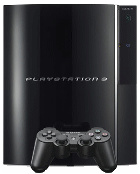 In a follow up to our Folding@home story here, the latest stats for the project show that over 250,000 PlayStation 3 users have now signed up. The number is very impressive considering the project has only been active for one month.
In a follow up to our Folding@home story here, the latest stats for the project show that over 250,000 PlayStation 3 users have now signed up. The number is very impressive considering the project has only been active for one month.
Standford also reported that the console has helped bring recognition to the project and that PC contributions have increased 20 percent.
"The PS3 turnout has been amazing, greatly exceeding our expectations and allowing us to push our work dramatically forward," said Vijay Pande, associate professor of Chemistry at Stanford University and Folding@home program lead.
"Thanks to PS3, we have performed simulations in the first few weeks that would normally take us more than a year to calculate. We are now gearing up for new simulations that will continue our current studies of Alzheimer's and other diseases."
The project also released a software update yesterday, version 1.1. The new update "improves visibility of donor locations on the globe, folding calculation speed and protein viewing. There's also additional language support, help screen hints, and improved donor-name length and character handling."
Source:
Gi.biz












